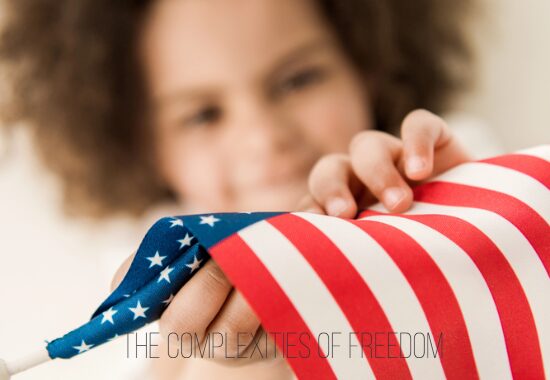Considering the Complexities of Freedom
By K. Bean
As we delve deeper into our history and the true essence of freedom, July 4th becomes a day of profound reflection. It invites us to consider the complexities of freedom and to question who is genuinely free and under what circumstances. This exploration is particularly relevant in the context of transracial adoption, where understanding our identities and truths as individuals and families becomes paramount.
The concept of freedom, as celebrated on Independence Day, is multifaceted. It encompasses not just the political liberation from colonial rule for some but also the ongoing struggle for social, economic, and personal freedoms. While the Declaration of Independence proclaimed that all men are created equal, the reality of freedom has been unevenly distributed throughout American history. This discrepancy prompts me to ask: Who is really free, and when?
For many, the journey to freedom is intertwined with personal history and identity. In my family, this journey involves exploring and understanding the truth of who we are. It’s important to me that we intentionally create a space for our boys to explore their full identities. Adoption has added layers of complexity to each of our identities, often involving questions about heritage, belonging, and self-discovery. For my boys, freedom includes the ability to access their personal histories, understand their cultural roots, and reconcile their identities with us and broader society.
Freedom to Explore Identities
The freedom to explore their identities is supported and encouraged, however, they have limited access to information about their origins and backgrounds. Fostering connections with the families they were born to and creating an environment where open and honest conversations can happen is ideal. This exploration is not just about satisfying curiosity; it is fundamental to developing a strong, healthy sense of self. With that said, the pain of the past has caused a barrier between their family of origin and the 4 of us. Every ask, every text, every promise is a reminder there are barriers to having the freedom to know all parts of themselves.
Freedom: An Ongoing Process
July 4th, therefore, becomes an opportunity to reflect on how these principles of freedom apply within the microcosm of our families. It encourages us to think about how we can create the conditions where every family member feels free to express themselves and explore their identities. This means celebrating differences, acknowledging the complexities of adoption, and understanding that freedom is not a one-time achievement but an ongoing process.
Contemplating How Race and History Impact the Experiences of Adoptees
In contemplating freedom, we must also consider the broader social context. Historical and systemic inequalities have meant that the promise of freedom has not been equally realized by all. For transracially adoptive families, understanding these broader issues is crucial. It involves recognizing how race and history impact the experiences of adoptees and being advocates for social justice and equity.
Reflect on the True Meaning of Freedom
In July and all year long, let’s make time to reflect on the true meaning of freedom, consider who is genuinely free, and acknowledge that freedom is an evolving journey. By doing so, we honor the spirit of independence, not just through celebration but through a commitment to continuous growth, understanding, and the pursuit of true freedom for all.
This post is from our July, 2024, newsletter. If you would like to get our newsletter in your inbox each month, as well as information about our annual Transracial Journeys Family Camp and our monthly Zoom call to provide support for our transracial adoption parents please subscribe.

